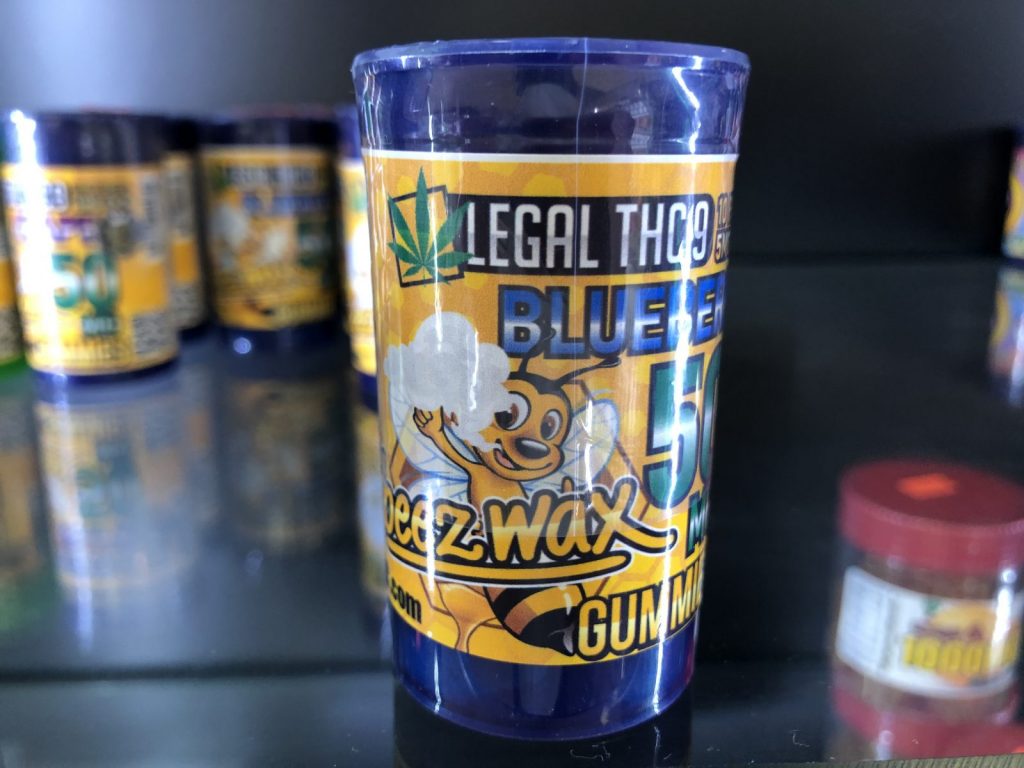Brooklyn Park Considers Licensing Ordinance for THC Products
The city of Brooklyn Park is taking steps to regulate the sale of products containing THC, the main intoxicating ingredient found in hemp and marijuana plants.
On Monday, the city council approved the first reading of a licensing ordinance for businesses that could sell edibles and beverages containing THC. The council action comes after the Minnesota Legislature legalized the sale of THC products July 1.
Residents who provided written feedback to the city raised concerns about those under age 21 getting their hands on the products. Others didn’t want the effects of sales possibly adding to the city’s crime levels. Some provided statistics about increasing drug addictions.
“I am begging you to put a moratorium and say no to more drugs,” said Brooklyn Park resident Collette Guyott-Hempel. “If you choose to pass then you choose to harm our kids.”
Brooklyn Park City Council member Terry Parks asked what cities can do to restrict sales after the state law passed.
“Cities have a very limited authority to ban sales,” responded Jim Thomson, attorney for Brooklyn Park.

A container of THC gummies at a smoke shop in New Hope.
‘We Have to Pass Something’
State law for THC products does limit the concentration of the ingredient. Edibles or beverages cannot contain more than 5 milligrams of THC per serving or more than 50 milligrams total in a package.
The legislation also includes marketing and labeling requirements. For instance, packaging cannot contain cartoons geared toward children. THC also can’t be added to commercially available candy.
However, state law does not limit where THC products can be sold, with the exception of liquor stores.
“We have to pass something to actually enforce what [the legislature has] passed,” said Brooklyn Park City Council member Susan Pha, who was recently elected to the state Senate.
Under Brooklyn Park’s proposed ordinance, businesses must have a license to sell THC. License applicants must pass a background check. Businesses located within 300 feet of a school would not be eligible. In addition, THC products must be located behind a counter or locked case that requires employees to access.
One issue that remains undetermined is how much the city will charge businesses for a license. Nearby cities have a wide range of costs. According to city officials, the city of Golden Valley charges a $450 annual fee and $100 for a background check. The city of Coon Rapids, meanwhile, charges a $10,500 annual fee, which includes a background check.
Some felt the higher cost that some cities charge is excessive.
“They can decide for themselves, but a $10,000 annual fee, like in Coon Rapids and Woodbury, to me ridiculous,” said Pha.
Another issue unsettled is whether the city will place a limit on the number of THC licenses allowed in the city. If council members agree to a limit, they would also need to decide how many.
Brooklyn Park City Council member XP Lee mentioned setting 50 licenses as the limit.
“I want to make sure certain areas of our city are not overloaded with the stores,” said Lee.
Brooklyn Park currently allows 55 tobacco licenses for which the city does not set a limit.
“I doubt we’re going to get 100 applicants,” said Pha, speculating on the number businesses applying to sell THC products. “I think we’re going to be in that 20-30 range, which is manageable.”
Police ‘All Over the Board’ on THC Sales
Brooklyn Park City Council member Boyd Morson wondered how police felt about the sale of THC products. Brooklyn Park Police Chief Mark Bruley said reactions from police are mixed.
“My peers are kind of all over the board,” said Bruley, referring to agencies around the state. “[Brooklyn Park police] are somewhere in the middle to be honest with you.”
Bruley did acknowledge a likely increase in DWIs. He pointed to the state of Colorado, which he said has had issues with DWIs and thefts from stores.
The Brooklyn Park Police Department will have two additional drug recognition experts in 2023 to help with impairment issues, including expertise on THC impairment, Bruley said.
Brooklyn Park Mayor Lisa Jacobson, the lone no vote against the THC licensing ordinance, wanted to make sure licensing fees account for extra costs on public safety.
“We have enough residents who don’t think this should be a thing and are not going to be happy if they’re subsidizing your department’s time in order to license this,” said Jacobson.
Brooklyn Park will consider final approval of a THC product licensing ordinance at its Dec. 5 meeting.
If approved, the ordinance would take effect March 1, 2023.
Also See: Brooklyn Center Approves One-Year Moratorium for THC Edible Sales


